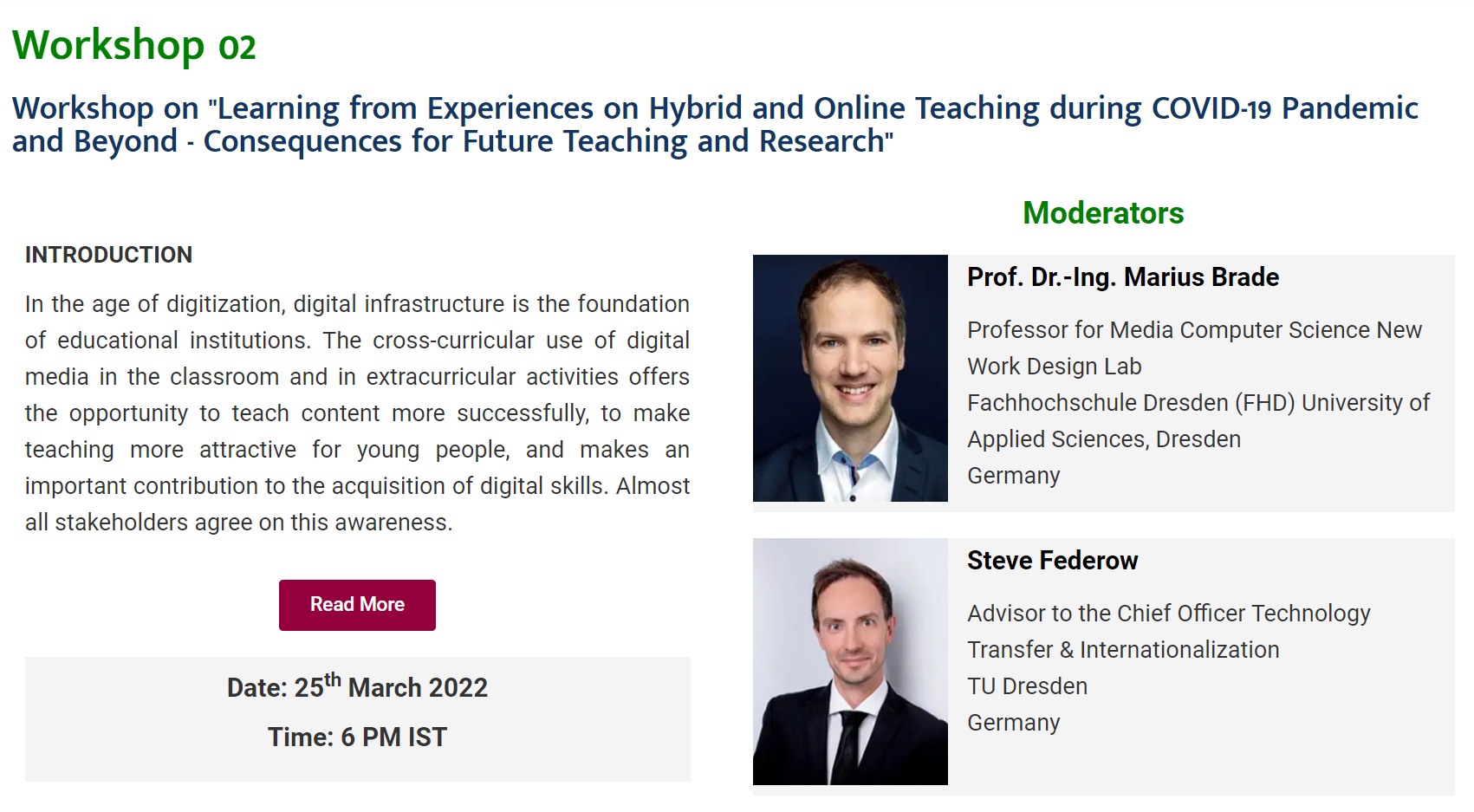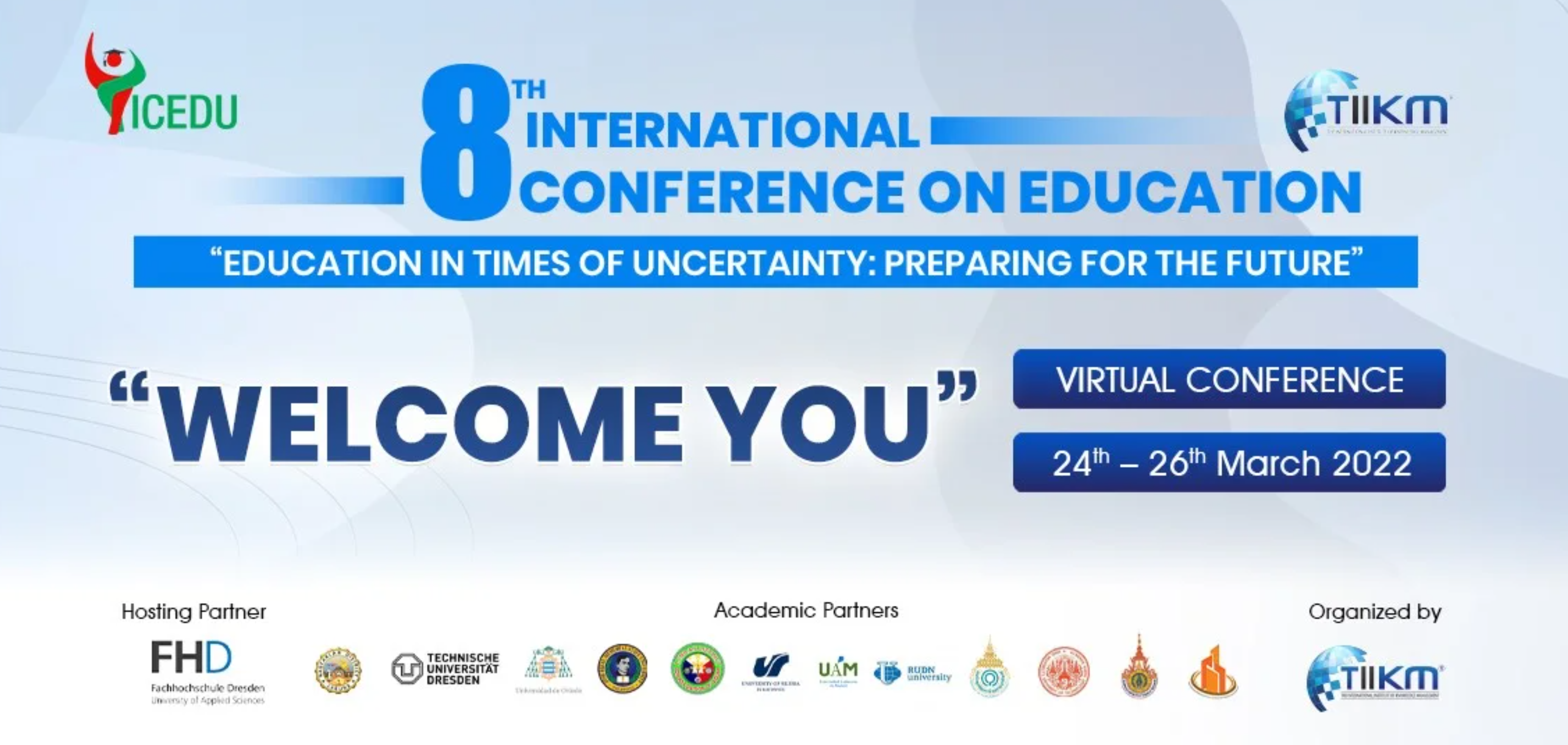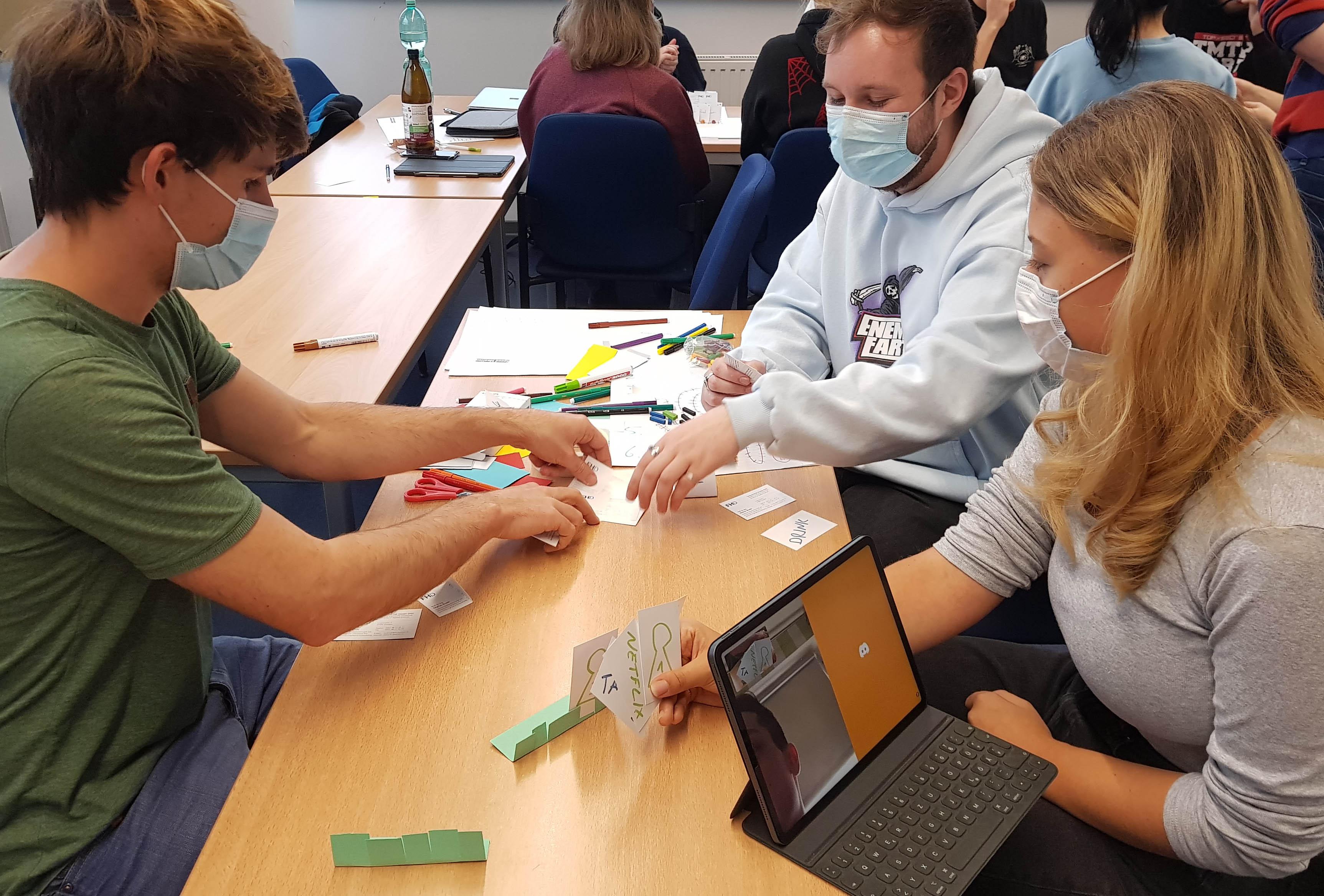Workshop on "Learning from Experiences on Hybrid and Online Teaching during COVID-19 Pandemic and Beyond - Consequences for Future Teaching and Research"
25. März 2022, 16:00 Uhr

In this interactive format, the authors plan to approach together with stakeholders the definition of pragmatic requirements for all participants of the educational process.
INTRODUCTION
In the age of digitization, digital infrastructure is the foundation of educational institutions. The cross-curricular use of digital media in the classroom and in extracurricular activities offers the opportunity to teach content more successfully, to make teaching more attractive for young people, and makes an important contribution to the acquisition of digital skills. Almost all stakeholders agree on this awareness. There are experts in research and education throughout the world who have been researching the topic from various angles for years, as well as several software and hardware providers.
In the age of digitization, digital infrastructure is the foundation of educational institutions. The cross-curricular use of digital media in the classroom and in extracurricular activities offers the opportunity to teach content more successfully, to make teaching more attractive for young people, and makes an important contribution to the acquisition of digital skills. Almost all stakeholders agree on this awareness. There are experts in research and education throughout the world who have been researching the topic from various angles for years, as well as several software and hardware providers.
CHALLENGES
However, if we are suddenly forced to organize lessons from home, as it recently happened as a result of the pandemic, we are entering new territory as parents, students and teachers, as well as on a social and institutional level. Suddenly, spontaneous pragmatic solutions are needed in order to be able to work at all. As a result, there is unintentionally little room for considering concerns, and data protection issues also tend to take a back seat. Overall, it shows how important simple, pragmatic and proven solutions are for digitally supported educational processes.
CHANCES AND QUESTIONS
The “crisis” experienced offers a great opportunity to discuss the best-practice solutions that have emerged in the process, some of which were born out of necessity, and to analyze their strengths and weaknesses. Questions about suitable solutions for face-to-face teaching and for teaching and learning from home must also be mastered in the future. Good concepts are needed to enable participation and needs-based didactic support for all in hybrid and online education.
CHANCES AND QUESTIONS
The “crisis” experienced offers a great opportunity to discuss the best-practice solutions that have emerged in the process, some of which were born out of necessity, and to analyze their strengths and weaknesses. Questions about suitable solutions for face-to-face teaching and for teaching and learning from home must also be mastered in the future. Good concepts are needed to enable participation and needs-based didactic support for all in hybrid and online education.
INTERACTIVE FORMAT
In this interactive format, the authors plan to approach together with stakeholders the definition of pragmatic requirements for all participants of the educational process. An open format will be chosen, with the following starting points, which will be added to during the event:
In this interactive format, the authors plan to approach together with stakeholders the definition of pragmatic requirements for all participants of the educational process. An open format will be chosen, with the following starting points, which will be added to during the event:
- Best practice solutions from the homeschooling experiences.
- Best practice solutions from the hybrid experiences (e.g., having attendees remote and in classroom simultaneously).
- Solutions for substitute (distance) teaching.
- What’s important for parents, students, schools and educational institutions.
As a result of the format, the authors plan to write a manifesto together with all interested attendees with recommendations for action to inspire future digital educational concepts. The focus is on a mix of healthy pragmatism and innovation.
Ihr Ansprechpartner bei Fragen

Prof. Dr.-Ing. Marius Brade
m.brade@fh-dresden.eu
Autor: Prof. Dr.-Ing. Marius Brade
Zuletzt geändert: 12 Mai 08:07
Erstellt: 06 Mai 12:09
Vorgeschlagener Inhalt

LevelUp'19
Spiele Potentiale Entdecken

ICEDU 2022 - Plenary Speech
Plenary Speech: "New Work meets Education: How to use Technology to Create Meaningful and Forward-Looking Education Experiences in a Digital Age"

Start-Up-Prototyping
Der Workshop richtet sich an alle Gründungsinteressierte und Gründungsteams, welche Methoden des UX Designs & Prototypings und der Produktentwicklung kennenlernen und ausprobieren möchten.
Newsletter
Sie möchten mit uns Kontakt aufnehmen? Wir sind für Sie da!
Sie haben Fragen, Kritik oder Anregungen? Dann schreiben Sie uns über das Kontaktformular. Sie können uns ebenfalls per E-Mail und Telefon erreichen.
Wir freuen uns auf Ihre Nachricht!
Sie haben Fragen, Kritik oder Anregungen? Dann schreiben Sie uns über das Kontaktformular. Sie können uns ebenfalls per E-Mail und Telefon erreichen.
Wir freuen uns auf Ihre Nachricht!
New Work Design Lab
an der Fachhochschule Dresden (FHD)
Campus Straßburger Platz
Güntzstr. 1, 01069 Dresden
www.fh-dresden.eu
an der Fachhochschule Dresden (FHD)
Campus Straßburger Platz
Güntzstr. 1, 01069 Dresden
www.fh-dresden.eu
Kontakt
Tel.: +49 351 4445 409
Fax: +49 351 4445 410
Ansprechpartner
Prof. Dr. Marius Brade
E-Mail: m.brade@fh-dresden.eu
Tel.: +49 351 4445 409
Fax: +49 351 4445 410
Ansprechpartner
Prof. Dr. Marius Brade
E-Mail: m.brade@fh-dresden.eu
